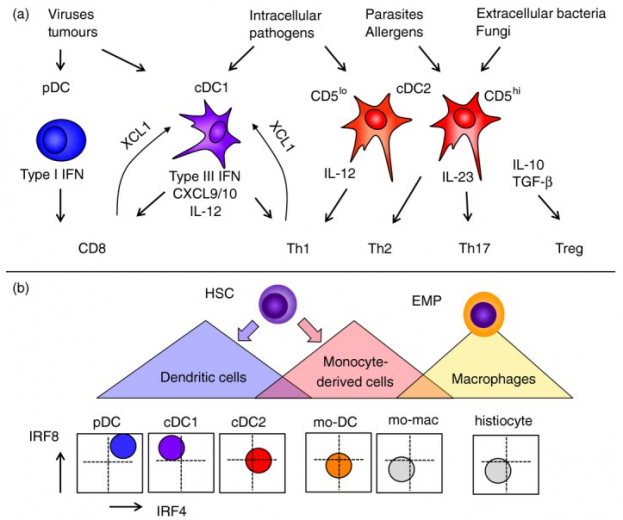(1) Cabeza-Cabrerizo M, et al. Dendritic Cells Revisited. Annu Rev Immunol. (2021);39:131-166.
(2) Collin M, et Bigley V. Human dendritic cell subsets: an update. Immunology. (2018);154(1):3-20.
(3) Kamata M, et Tada Y. Dendritic Cells and Macrophages in the Pathogenesis of Psoriasis. Front Immunol. (2022);13:941071.
(4) El-Awady AR, et al. Dendritic cells a Critical Link to Alveolar Bone loss and Systemic Disease Risk in Periodontitis: Immunotherapeutic Implications. Periodontol 2000. (2022);89(1):41-50.
(5) Liu J, Zhang X, Cao X. Dendritic cells in systemic lupus erythematosus: From pathogenesis to therapeutic applicationsJ Autoimmun. (2022);132:102856.
(6) Marciscano AE, Anandasabapathy N. The Role of Dendritic Cells in Cancer and Anti-Tumor Immunity. Semin Immunol. (2021 );52:101481.



